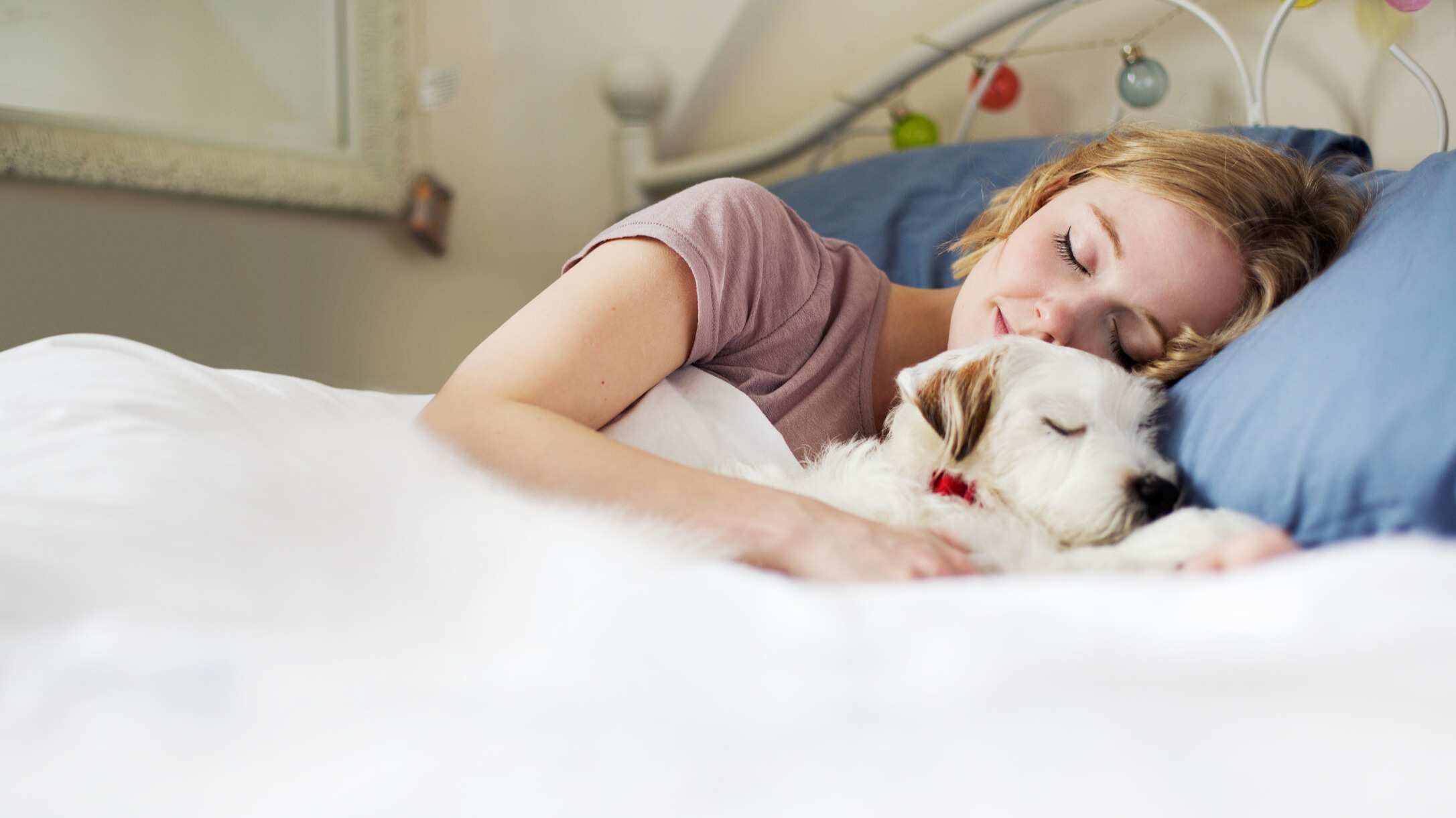
Are you someone who likes to share your bed with your pet? It’s not uncommon since studies show that around 56% of pet owners in the US do the same.However, according to experts, this can lead to various sleep and physical health struggles in the long run.It is true that having your pet in bed next to you may give a sense of comfort and security, and even emotional support for those struggling with mental health issues like depression or post-traumatic stress disorder.
But experts advise against this due to its serious impact on your wellbeing including infections and disrupted sleep.To help understand this better, we're exploring why you should avoid sleeping with your pet, as well as tips to help reduce the impact on your health and sleep if you really can't sleep without the comfort of your furry friend next to you.Is it bad to share a bed with your pet?(Image credit: Getty Images)As we have mentioned, sleeping with your pet can either be comforting or disruptive depending on a range of factors like your personal situation, how you take care of your pet and your sleep environment.

For some, sharing a bed with your pet can reduce stress, ease symptoms of anxiety and depression and enhance feelings of security which also leads to better sleep. For others, it may result in disturbed sleep due to constant movement or allergens.If you're someone who is prone to allergies or a light sleeper, sharing a bed with your pet is not recommended.
Ultimately, it comes down to your own sleep quality, health and how well your pet settles at night.3 reasons why you should avoid sharing your bed with your pet1. Bacteria and parasites Even the most well-cared for pets will carry fleas, mites and bacteria like Enterobacteriaceae, which includes E.
coli and Salmonella. These bacteria are infamous for causing a range of problems like fever, diarrhea and stomach cramps.The ticks or mites on the other hand can result in skin-irritations.
The Centre for Disease Control and Prevention says that some people may not even show symptoms even after several weeks of being infected while for others it may be severe, quickly."Close contact during sleep increases the risk of infection, especially for people with weakened immune systems," says Dr Tim Mercer, an NHS GP Partner and GP trainer with Opera Beds.Long-hours of close contact with your pet during sleep therefore is a risk factor in developing any sort of infections, diseases or allergic reactions.
2. May cause sleep disruptionsSolving the problem of restless sleep partners is easy with the help of one of the best mattresses for couples, but sharing your bed with your pets might be trickier.A research study on co-sleeping with dogs underlines how it resulted in poorer sleep quality and increased symptoms of insomnia in participants.
This is because pets follow a different sleep cycle from humans and need to be trained to follow your routine and habits."Pets have different sleep cycles, meaning they may move, snore, or wake up during the night, potentially disrupting your rest. If you often feel groggy in the morning, your pet’s nighttime habits could be a factor," explains Dr Mercer.
(Image credit: Getty Images)3. Respiratory problemsWhile it may feel cozy to cuddle up to your pet in bed, the biggest challenge in getting a clean sleep is ridding your bed, pillows and bedding of pet dander.These are basically tiny skin flakes which can trigger allergies and exacerbate any existing respiratory conditions like asthma.
Children are particularly seen to be impacted by long-term exposure to pet hair or dander during sleep."Pet hair and dander can irritate the airways, leading to congestion, sneezing, and poor-quality sleep. Even if you're not allergic, exposure over time can increase sensitivity," explains Dr Mercer.
Here's how to share your bed with a pet and maintain healthy sleep1. Wash your bedding weeklyIf sleeping with your pet is unavoidable, washing your bedsheets and pillow covers weekly or even more often is the golden rule to have a goodnight's rest.Your bedding will otherwise become the breeding ground for bacteria and mites as it absorbs your own body oils, sweat, dead skin cells along with the pet dander and hair.
Additionally, you can also prevent any of the dirt and mites from crawling into your bed by investing in one of the best mattress protectors, which are designed to safeguard all around so you can sleep comfortably without worrying about your bed's hygiene.2. Use an air purifierBreathing in clean air during the night is as important as having a hygienic mattress to sleep on.
If you're someone who struggles with asthma or other respiratory issues, an air purifier is something you can add to your sleeping environment. This can keep away pet dander, odor, dust and other common allergens ensuring a clean comfortable sleep.(Image credit: Yuttana Jaowattana/Shutterstock)3.
Regular vet visits and groomingAnother crucial step is to always keep a check on your pet's health. Never miss a vet appointment and make sure that you're up to date on vaccinations, flea or tick and de-worming treatments for your pets."Regularly brushing your pet helps remove excess fur and minimises shedding.
Taking your pet to a professional groomer every 6-8 weeks and using a de-shedding shampoo can significantly reduce the amount of loose hair," says Dr Mercer.De-shedding tools and mitts can also be used to remove excess fur before it ends up in your bedding and on your furniture.4.
Keep a consistent sleep scheduleHaving a consistent bedtime is a sleep hygiene best practice. Just like you, your pet also has a circadian rhythm (body's internal clock regulating sleep) which controls their sleep and wake cycle.Training them to go to bed and wake up at the same time with you will improve sleep quality and reduce any disruptions from them waking up in the night.
.















